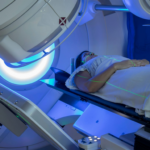
Radiation therapy stands as a cornerstone in the treatment of lung tumors, offering a precise and effective method to combat cancerous growths within the lungs. This therapy utilizes high-energy rays or particles to destroy cancer cells while minimizing damage to surrounding healthy tissues, highlighting its critical role in modern oncology.
Understanding Lung Tumors and Their Treatment Challenges
Lung tumors can arise from various sources, including primary tumors originating within the lung itself or metastatic tumors spreading from other parts of the body. Their treatment complexity lies in their potential to impair lung function significantly and spread to other vital organs. The treatment approach varies based on factors such as tumor type, stage, and location, with radiation therapy often playing a pivotal role in both curative and palliative settings.
Mechanism of Radiation Therapy
Radiation therapy exerts its therapeutic effect by damaging the DNA within cancer cells, thereby impeding their ability to multiply and survive. This is achieved through the precise delivery of radiation to the tumor site while minimizing exposure to nearby healthy tissues. The advancement of technology has led to the development of sophisticated techniques that enhance the precision and effectiveness of radiation therapy for lung tumors.
Types of Radiation Therapy Techniques
- External Beam Radiation Therapy (EBRT):
- Intensity-Modulated Radiation Therapy (IMRT): IMRT allows for the delivery of varying radiation intensities to different parts of the tumor, sculpting the radiation dose to conform precisely to the tumor shape while sparing adjacent healthy tissues.
- Stereotactic Body Radiation Therapy (SBRT): SBRT delivers high doses of radiation in a few sessions, typically 1 to 5 treatments, targeting small, well-defined lung tumors with extreme accuracy. It is particularly effective for early-stage lung cancers or for treating tumors in patients who are not surgical candidates.
- Internal Radiation Therapy (Brachytherapy): While less commonly used for lung tumors, brachytherapy involves placing radioactive sources directly into or near the tumor. This technique enables the precise delivery of a concentrated dose of radiation to the tumor site while safeguarding adjacent healthy tissues from unnecessary exposure.
- Treatment Planning and Delivery Precision
The success of radiation therapy in treating lung tumors hinges on meticulous treatment planning. Advanced imaging techniques such as CT scans and PET scans provide detailed information about the size, shape, and location of the tumor and surrounding critical structures. This information is crucial for radiation oncologists to design a personalized treatment plan that maximizes tumor control while minimizing side effects.
Benefits and Challenges of Radiation Therapy
Radiation therapy offers several advantages in the treatment of lung tumors:
- Preservation of Lung Function: Unlike surgical interventions, radiation therapy can help preserve lung function by selectively targeting tumors while sparing healthy lung tissue.
- Minimized Side Effects: Advanced techniques such as IMRT and SBRT reduce the risk of side effects such as fatigue and damage to nearby organs, improving patient comfort and adherence to treatment.
- Integration with Other Treatments: Radiation therapy can be used in combination with surgery, chemotherapy, or immunotherapy to enhance overall treatment outcomes for lung cancer patients.
However, challenges remain, including the potential for radiation-induced damage to nearby organs and tissues and the need for precise patient positioning and monitoring during treatment sessions.
Cancer Care Pune Clinic in Pimple Saudagar
Located in Pimple Saudagar, the Cancer Care Pune clinic is renowned for its comprehensive radiation oncology services. Led by Dr. Jagdish Shinde, acknowledged as one of the best oncologists in Pune, the clinic specializes in delivering personalized care using state-of-the-art technology. Patients benefit from a multidisciplinary approach that integrates the latest advancements in radiation therapy with compassionate patient care.
Summary
Radiation therapy represents a cornerstone in the treatment of lung tumors, offering precise and effective tumor control while preserving the quality of life for patients. The evolution of techniques such as IMRT and SBRT has revolutionized the field, allowing for more targeted treatments with reduced side effects. At Cancer Care Pune clinic in Pimple Saudagar, under the leadership of Dr. Jagdish Shinde, patients receive advanced care tailored to their individual needs, ensuring optimal outcomes in the fight against lung cancer. As research continues to advance and technology improves, radiation therapy continues to play a pivotal role in shaping the future of lung cancer treatment, offering hope and healing to patients worldwide.




